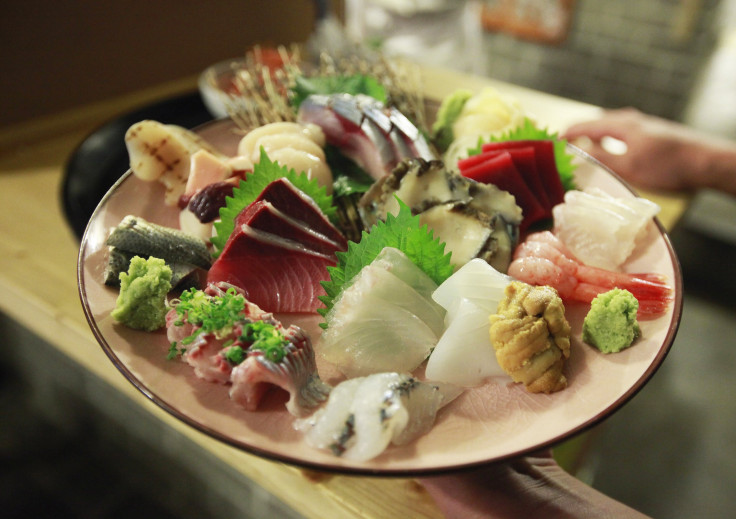The Okinawa Diet May Be The Key To Longevity And Help You Live To 100-Years-Old

Japan has frequently been the locale of many people who lived to be older than 100 years old, most notably Jiroemon Kimura, the oldest man ever recorded in history. Following his death in June at the age of 116 in Kyotango, 115-year-old Misao Okawa from Osaka became the new record holder. Even the world’s oldest dog was living in Japan before it died in December 2011. So it comes as no surprise that a Japanese-influenced diet may be the key to longevity.
The Okinawa Diet, named after the Japanese Okinawa islands where the largest amount of centenarians are located, could be exactly why so many Japanese people live to ages past 100, The Guardian reported. The high-vegetable, low-meat diet consists of foods like rice, tofu, bamboo shoots, seaweed, pickles, small cubes of pork belly and green tea, which are typically served in “longevity cafes.”
According to Dr. Craig Wilcox, author of the book “The Okinawa Program,” told The Guardian that eating “as low down on the food chain as possible” is the easiest way to achieve longevity.
"The Okinawans have a low risk of arteriosclerosis and stomach cancer, a very low risk of hormone-dependent cancers, such as breast and prostate cancer," Willcox told The Guardian. "They eat three servings of fish a week, on average, plenty of whole grains, vegetables and soy products too, more tofu and more konbu seaweed than anyone else in the world, as well as squid and octopus, which are rich in taurine -- that could lower cholesterol and blood pressure."
The best vegetables, in terms of nutrients, associated with the Okinawa Diet include indigenous veggies like purple sweet potatoes, which are rich in flavonoids, vitamin E, lycopene and carotenoids and “goya” cucumbers, which are proven to lower blood sugar for those with diabetes. Wilcox also said teas have come into play in the Okinawa Diet, like turmeric and jasmine tea that could potentially prevent cancer.
The Telegraph pointed out, though, that DNA and habitual behavior also play a large factor in longevity. Upbringing, family history, temperament, physical activity, climate, health care and many more factors determine how long one will live in addition to a proper diet.
Professor John Mather, a director of the Institute for Ageing and Health at Newcastle University, told The Telegraph that other popular, hyper local diets like the Mediterranean Diet, based on the eating habits of countries bordering the Mediterranean Sea, are similar in effectiveness for longevity as the Okinawa Diet. Mather said that despite the amount of centenarians in Japan, there is “well-documented longevity” of people in Sardinia or the Greek island of Ikaria. But at the end of the day, it all comes down to eating less of the bad foods and more vegetables and fish but less meat, no matter which diet you choose.
"All of these diets work on similar mechanisms," Mather told The Guardian. "One hypothesis is that the secret about ageing is to avoid accumulating molecular damage, and eating fish, beans, nuts, seeds, legumes, whole grains, and not so much red meat, dairy or sugar may help us to reduce that kind of cellular damage."
© Copyright IBTimes 2024. All rights reserved.












